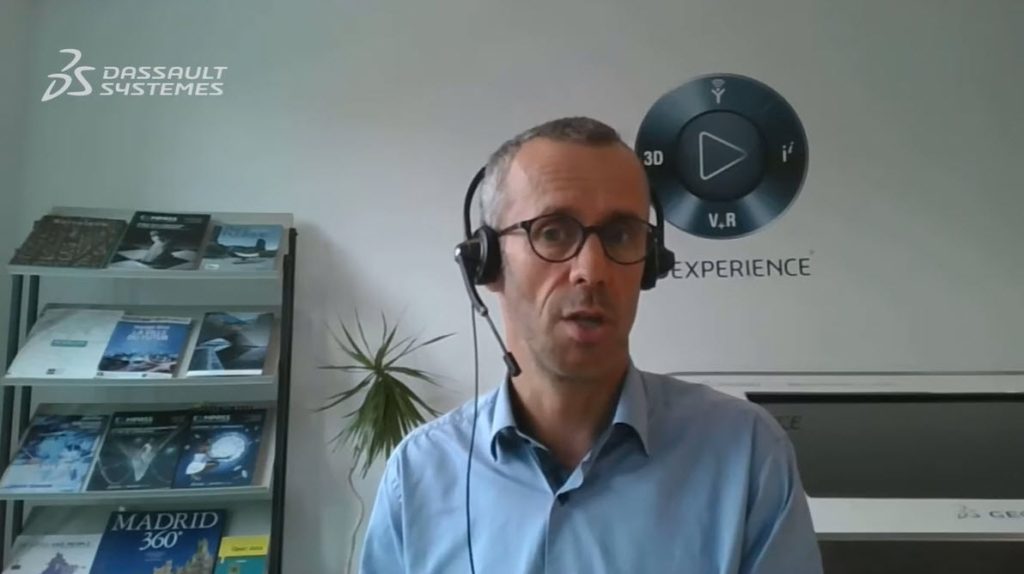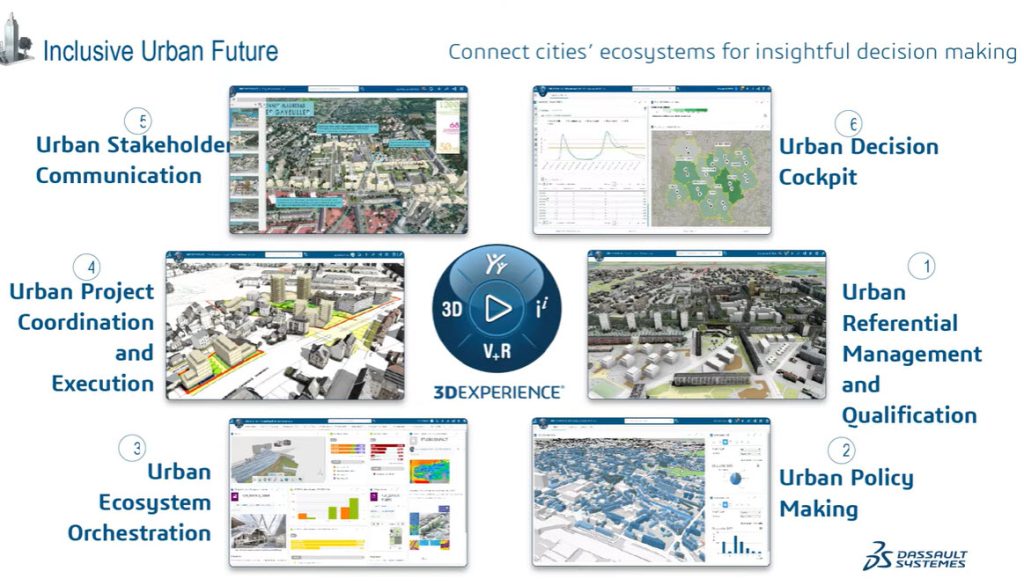The second part in Dassault Systèmes’ Future Sustainable Cities Program, Track 1: Sustainable City series looks at how we can bring together key stakeholders in a single environment and collaborate effectively to respond to the vast challenges faced by cities.
This article is based on a presentation by Guillaume Lenoel, Dassault Systèmes’ Industry Solution Experience Senior Manager, Construction, Cities & Territories, for the Future Sustainable Cities program. Read the first part in the series here.
Former United Nations (UN) Secretary-General Ban Ki-moon noted, “our struggle for global sustainability will be won or lost in cities”.
As the world continues to rapidly urbanize, a collaborative and a sophisticated platform which can provide evidence-based analytics not only using past data, but data in-real time will be essential to ensuring that urbanization contributes effectively to sustainable development.
“Inclusive Urban Future from Dassault Systèmes brings together key stakeholders in a single environment to collaborate and respond to the vast challenges faced by cities. Effective collaboration has the potential to optimise effective decision making,” highlights Guillaume Lenoel, Dassault Systèmes’ Construction, Cities & Territories Industry Solution Experience Senior Manager.

The cloud-based platform can be quickly deployed at scale, supporting innovation and urban appeal by integrating ecosystems on a centralised database and fostering new business models. There six key areas that the solution can help urban planners and developers when managing public policies:

The demand for services continues to grow with urbanization, providing the opportunity to leverage advanced technologies to connect the expertise and the knowledge available in the territory while fostering business and innovation. This presents opportunities to review long-term plans for addressing social, economic and environmental challenges to sustainability and resilience of cities.
Download the whitepaper, Visualizing Smart Cities for a Resilient Future, and learn how the 3DEXPERIENCE Platform enables cities to predict results, reduce negative outcomes and waste, helping to drive sustainable and resilient cities.
Watch the full webinar, Collaboration Platform for Sustainable Cities, for more in-depth insights on how city stakeholders can collaborate around a virtual twin experience platform to develop, implement and monitor public policies for sustainable city development.
All the webinars of Dassault Systèmes’ Future Sustainable Cities Program, Track 1: Sustainable City are now available on-demand at https://events.3ds.com/track-1-sustainable-city
